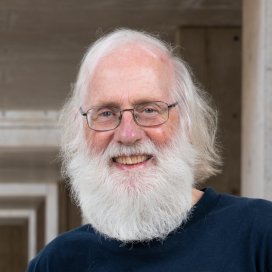Tony Hunter received his BA and PhD from the University of Cambridge, and did postdoctoral studies there and at the Salk Institute. Since 1975, he has been on the faculty of the Salk Institute, where he is the Renato Dulbecco Chair. In 1979, through his work on tumor viruses, he discovered a new class of protein kinases that phosphorylate tyrosine in proteins, establishing that dysregulated tyrosine phosphorylation by an activated tyrosine kinase can cause cancer. Tyrosine phosphorylation is a reversible protein modification essential for the regulation of a wide variety of cellular processes in multicellular eukaryotes, including transmembrane signal transduction by surface receptors. Hunter’s work led to the realization that aberrant tyrosine phosphorylation is causal in several types of human cancer, and this has led to the successful development of small molecule inhibitors that target disease-causing tyrosine kinases, known as TKIs, such as GleevecTM.
Hunter has received many awards for his work on tyrosine phosphorylation, including the Sjöberg Prize for Cancer Research, and the Tang Prize for Biopharmaceutical Science, and is a Fellow of the Royal Society of London and a Member of the US National Academy of Sciences.
In recent work, he has been studying histidine phosphorylation of proteins, generating monoclonal antibodies specific for the two isoforms of phosphohistidine, which he is using to identify new histidine phosphorylated proteins, and to uncover a possible role for histidine phosphorylation in cancer. He is also investigating the role of stromal cells in pancreatic cancer, discovering that the leukemia inhibitory factor (LIF) cytokine secreted by cancer-associated fibroblasts is important for tumor progression.

